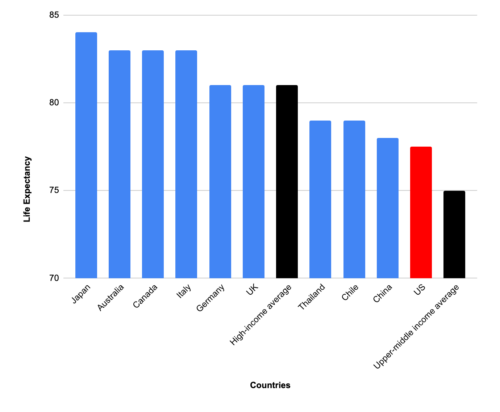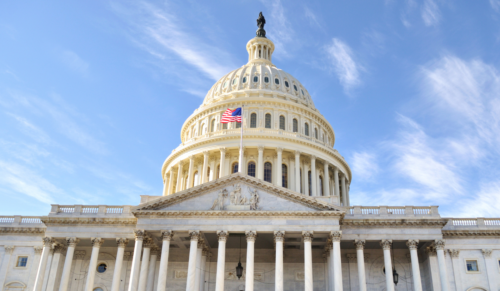A Deficit of Common Sense
By: / 11.18.2010
 ‘Tis the season for deficit commissions. The past week has brought not one, not two, but three stabs at solving America’s looming fiscal crisis. And just yesterday, the Brookings Institution hosted a panel discussion on “The Politics of Entitlement Reform and the Budget Deficit,” featuring a murderers’ row of budget experts across the ideological spectrum. All the activity underscores just how much concerns about the deficit have taken over the Washington conversation.
‘Tis the season for deficit commissions. The past week has brought not one, not two, but three stabs at solving America’s looming fiscal crisis. And just yesterday, the Brookings Institution hosted a panel discussion on “The Politics of Entitlement Reform and the Budget Deficit,” featuring a murderers’ row of budget experts across the ideological spectrum. All the activity underscores just how much concerns about the deficit have taken over the Washington conversation.
But will all that hand-wringing lead to anything concrete and enduring? I have my doubts. The substantive merits and faults of the plans aside, what’s striking is, frankly, how unlikely any action seems to be.
Too pessimistic? Perhaps. But at the Brookings event, there was a subterranean motif that tempered any enthusiasm one might have for any ideas put forward. Isabel Sawhill, director of Brookings’ Budgeting and National Priorities project, at one point said, “The public is in denial about the scope of the problem.” Meanwhile, Eugene Steuerle of the Urban Institute sounded another note of consternation: “Both political parties are afraid to ask the middle class to do anything.”
There, neatly stated, are two fundamental problems that stand in the way of fiscal balance: a public in denial, a politics in retreat. Simply put, the American public simply has no idea how much the government that they like to have around costs. They may profess to hate big government, but ask about cuts to the entitlement programs – by far the largest contributors to our long-term deficit – and what do they say? Hands off! Even 62 percent of Tea Partiers say that Social Security and Medicare are worth the cost of the programs; the general public is even more supportive, at 76 percent.
Recent research by Cornell political scientist Suzanne Mettler underscores the disconnect between the kind of government Americans say they want and the government they actually use. In a recent paper that takes a look at Americans’ relationship with the “submerged state” – federal policies that incentivize and subsidize behavior by individuals – Mettler found that most Americans have little awareness of how the state affects their lives. Most alarming were the results of a survey of program beneficiaries who were asked if they had ever used a government program. Forty-four percent of those collecting Social Security retirement and survival benefits said no; 43 percent who had benefited from unemployment insurance said no; nearly 40 percent of Medicare said no. There’s more: 47 percent who took home earned income tax credit said no; 53 percent of those who took Pell Grants said no; and 60 percent who benefited from the home mortgage interest deduction said no.
So the governed don’t know. What about those who govern? Alas, our political elite seems to have lost all sense of responsibility at steering the ship of state to calmer waters. The fault lies mainly with the right. Yes, Nancy Pelosi’s declaration that Social Security and Medicare cuts are off-limits is easily caricatured as liberalism at its worst, but let’s face it – Pelosi faces a lot of opposition on her side on that front. There is a genuine debate going on under the big progressive tent about just how much entitlements should be touched, if at all, and it’s testimony to the vibrancy – and fractiousness – of progressivism.
Contrast that with the right, which has become an all-tax-cut, all-the-time movement. Grover Norquist, in whose image today’s Republican Party has been modeled, dismissed the Bowles-Simpson report, with his organization, Americans for Tax Reform, calling it “a plan to raise taxes cloaked in the veil of bipartisanship” – this in response to a plan that, by any objective measure, by far does more on the spending side than the revenue side. If their starting point is no revenue increases at all, then the right has all but written the obituary on any attempt to narrow the budget gap.
So there you have: a failure of government, a failure of the governed. Until the American public begins to accept responsibility for the current fiscal straits – and it begins by asking serious questions about what they’d like to see from government and how much they’re willing to pay for it – there really is little hope that we’ll see movement on the issue. Meanwhile, the only institution that can give them that nudge, our political class, isn’t up to the task.
When asked about the worst-case scenario that would finally force policy-makers’ hand to do something, Brookings’ Henry Aaron had a one-word response: “Greece.” Americans may profess to hate European-style states, but the disconnect between their hatred of taxes and love of benefits may well hasten the day of a European-style collapse.
Related Blog Articles






